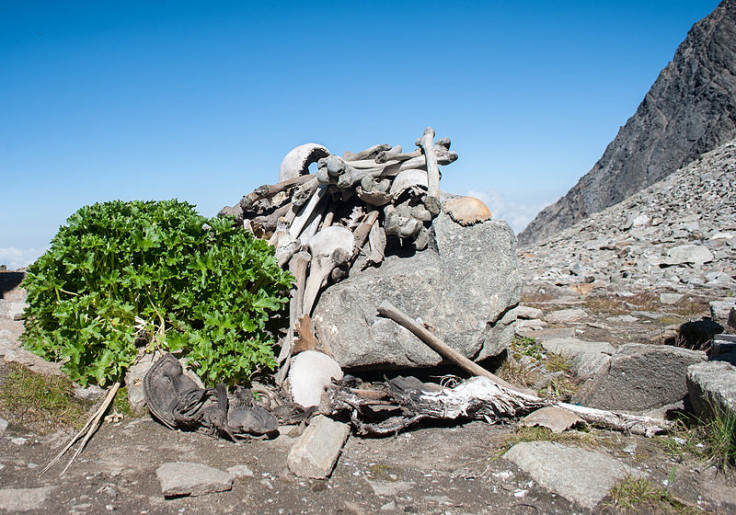Himalyan 'skeleton lake' DNA testing reveals mysterious results
The lake has remains of humans dating back to the 7th century.
There is a mysterious lake in the Himalayas and it's full of human skeletons – this isn't just an urban legend. Roopkund Lake in the Himalayas contains human remains in the hundreds and is called "skeleton lake."
The lake, situated three miles above sea level, almost constantly has very cold temperatures. This has resulted in the preservation of the bodies. Some of these bodies have flesh still attached to the bones. The deposit of bodies in the 135-foot lake was earlier thought to be the result of a catastrophic epidemic that occurred a millennium ago. However recent DNA studies have turned these assumptions on their head.
A new joint study by scientists from three countries – India, America, and Germany, found that these remains were not all deposited at once. Instead, it seems to be a dumping ground for dead bodies that was used over a period of 1,000 years. Researchers examined 38 remains, out of which 23 were found to be males while 15 were found to be females.
These were found to belong to different genetic groups. Only 23 of the corpses were found to belong to males and females of South Asian ancestry who lived between the 7th and 10th centuries.
The rest of them were found to belong to two distinct genetic groups belonging to East Asian and Mediterranean ancestries. These bodies were deposited in the lake in the 17th and 20th centuries
The cause of death of these humans is yet to be ascertained, although the scientists believe that it has something to do with the high altitude. According to Éadaoin Harney, a doctoral student at Harvard and the lead author on the study, chances are that these humans died in different ways. The most bizarre finding was that none of the skeletons were related to each other. According to the chemical signatures, the individuals had different diets.
The scientists also theorize that at least some of these corpses might belong to pilgrims who were trying to cross the lake. The DNA tests are expected to throw up even more interesting results over time.

© Copyright IBTimes 2025. All rights reserved.





















